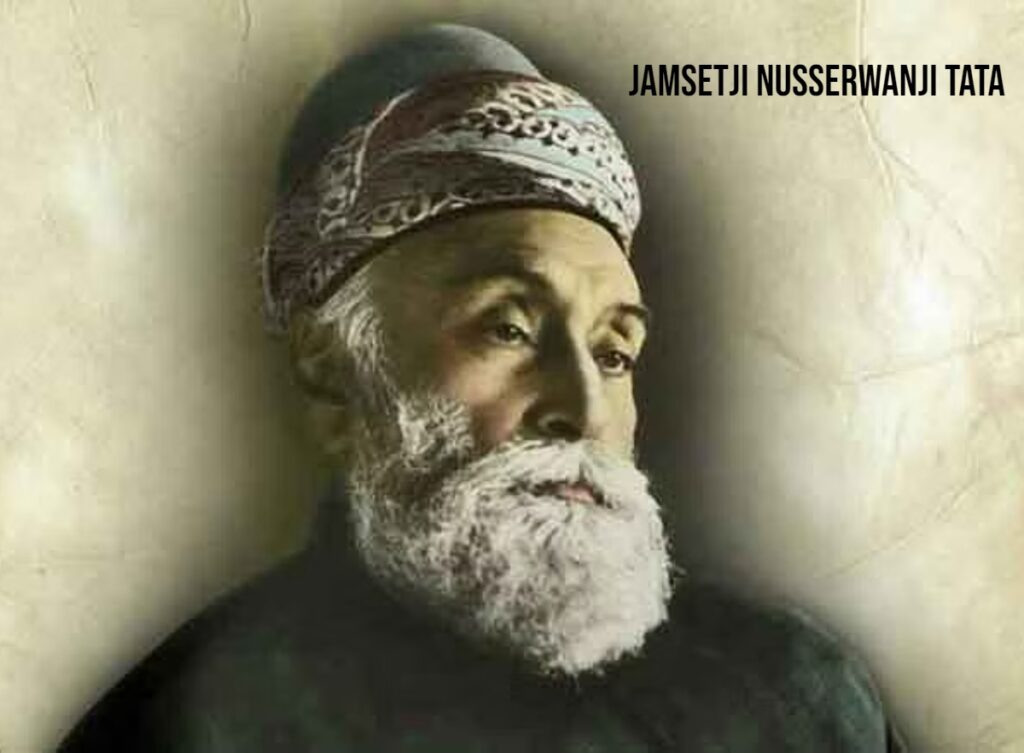Introduction:
In the ever-evolving landscape of global business, a select few conglomerates epitomize enduring success and steadfast principles. Among these distinguished entities stands the TATA Group, a conglomerate that has not only withstood the tests of time but has also emerged as a paradigm of sustainable growth, innovation, and social responsibility. This exploration delves into the inspiring success story of the TATA Group, shedding light on the pivotal factors that have propelled it to the pinnacle of corporate excellence.
Founding Principles:
The inception of the TATA Group can be traced back to the visionary Jamsetji Nusserwanji Tata in the 19th century, whose foresight extended beyond mere profitability. The founder’s dedication to societal well-being and nation-building laid the foundation for the group’s distinctive ethos.

Encapsulated in the phrase “In industry, be the master, not the servant,” the TATA Group’s founding principles signify a resolute commitment to leadership, innovation, and ethical business practices.
Diversification and Innovation:
At the heart of the TATA Group’s success lies its strategic diversification across a spectrum of industries. From steel and automobiles to information technology and hospitality, the group’s remarkable ability to adapt to evolving market trends and explore new frontiers has been a cornerstone of its achievements. Significant milestones include the establishment of Tata Consultancy Services (TCS) in 1968, marking India’s entry into the global IT services arena, and the creation of Tata Motors, a global automotive giant.
Global Expansion:
TATA’s global footprint serves as a testament to its adept navigation of international markets. The acquisition of British steelmaker Corus in 2007 and the iconic Jaguar Land Rover in 2008 underscored the group’s global ambitions. These strategic endeavors not only fortified TATA’s presence on the world stage but also highlighted its unwavering commitment to quality and excellence.
Leadership with a Purpose:
Throughout its storied history, the TATA Group has been led by visionary individuals who have steered the conglomerate with a profound sense of purpose. From the late J.R.D. Tata to Ratan Tata and the current stewardship of N. Chandrasekaran, pivotal roles have been played in ensuring that the group not only flourishes economically but also contributes meaningfully to societal development.
Business Model
The Tata Group, a preeminent conglomerate in India renowned for its extensive history and scale, operates on a meticulously crafted business model marked by strategic diversification, unwavering commitment to sustainability and corporate social responsibility, and an unwavering dedication to long-term growth. The following elucidates key facets of the Tata Group’s business model, illustrating its robustness and resilience:

Diversification:
Wide Array of Industries: The Tata Group strategically engages in a diverse range of industries, encompassing steel, automotive, information technology, telecommunications, hospitality, chemicals, and energy, among others. This deliberate diversification not only serves as a risk mitigation strategy during economic downturns but also positions the conglomerate to seize opportunities in disparate markets.
Sustainability and Corporate Social Responsibility (CSR):
Devotion to Social and Environmental Responsibility: A cornerstone of the Tata Group’s ethos is its profound commitment to sustainability and corporate social responsibility. Actively participating in initiatives that contribute to societal well-being, education, healthcare, and environmental conservation, the conglomerate operates ethically under the vigilant oversight of the Tata Sustainability Group, ensuring a positive impact on communities and the environment.
Innovation:
Pioneering Technological Advancements: With a rich history of fostering innovation, the Tata Group, exemplified by entities like Tata Consultancy Services (TCS), stands as a leader in innovation and technology. Encouraging a culture of research and development enables its subsidiaries to remain at the forefront of technological advancements, thereby sustaining competitiveness across various industries.
Global Expansion:
Strategic International Acquisitions: Embracing a strategy of global expansion through discerning acquisitions, the Tata Group’s notable endeavors include Corus, a British steelmaker, and Jaguar Land Rover, a prestigious luxury automotive brand. These strategic moves not only amplify the group’s global footprint but also augment its capabilities in diverse industries.
Leadership and Governance:
Stability in Leadership: The Tata Group has been distinguished by a history of stable and visionary leadership, with luminaries such as Ratan Tata and N. Chandrasekaran playing pivotal roles in steering the conglomerate. The group’s unwavering commitment to good governance practices ensures transparency, accountability, and ethical decision-making.
Customer-Centric Approach:
Prioritizing Customer Needs: Tata Group companies adhere to a customer-centric approach, particularly discernible in sectors like automotive and hospitality. The group strives to deliver products and services of exceptional quality, aligning seamlessly with customer expectations.
Financial Prudence:
Long-Term Perspective: The Tata Group adopts a sagacious long-term perspective in its business decisions, striking a balance between short-term gains and sustained growth. This approach encompasses prudent financial management and investment strategies, fortifying the group’s resilience in the face of economic challenges.
Human Capital Development:
Investment in Talent: Recognizing the paramount importance of human capital, the Tata Group invests ardently in talent development. Nurturing a culture of continuous learning and growth, the conglomerate ensures the acquisition and honing of skills within its workforce, thereby maintaining a competitive edge in the dynamically evolving business landscape.
In essence, the Tata Group’s business model is a testament to strategic diversification, an unwavering commitment to sustainability and social responsibility, a culture of innovation, global expansion through discerning acquisitions, stable leadership, a customer-centric ethos, financial prudence, and substantial investment in human capital. These integral elements synergistically contribute to the conglomerate’s enduring resilience and sustained success across a myriad of industries.
Social Responsibility:
The TATA Group’s success narrative transcends financial metrics, with equal emphasis on its impact on society. Exemplifying this commitment is the group’s dedication to corporate social responsibility (CSR), as evident in initiatives like the Tata Trusts, which actively support healthcare, education, and community development. The establishment of the Tata Nano plant in Gujarat, with a focus on sustainable and eco-friendly practices, further underscores the group’s dedication to environmental stewardship.
Challenges and Resilience:
The TATA Group, like any entity of its stature, has encountered challenges, including economic downturns and industry-specific hurdles. However, the resilience ingrained in its organizational DNA has enabled the conglomerate to navigate adversities with grace. The ability to learn from setbacks, innovate, and emerge stronger has become a defining feature of the TATA Group’s remarkable journey.
Conclusion:
The success story of the TATA Group is a saga characterized by resilience, innovation, and an unwavering commitment to principles. From its modest beginnings to its current status as a global powerhouse, the conglomerate continues to serve as an inspiration to the business world. As the TATA Group strides confidently into the future, it stands as a beacon of corporate excellence, illustrating that success, when grounded in values and purpose, transcends generations.

